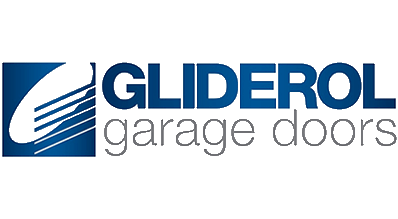Insulated vs. Non-Insulated Garage Doors
Insulated vs. Non-Insulated Garage Doors: Which One is Right for Your Home?
When selecting a garage door, one of the biggest decisions homeowners face is whether to choose an insulated or non-insulated model. This choice impacts not only the aesthetics of your home but also its energy efficiency, comfort, and usability. Let’s take a look into the differences between insulated and non-insulated garage doors, examining their benefits, drawbacks, and the scenarios in which each type excels. Our goal is to provide you with the necessary information to make an informed decision that aligns with your needs, climate, and lifestyle.
Understanding Garage Door Types
Insulated Garage Doors
Insulated garage doors are designed with energy efficiency in mind. They typically consist of two layers of steel or aluminium with insulation material sandwiched in between. This construction helps maintain temperature control within the garage, making it a more comfortable environment year-round. Insulated doors are particularly beneficial in areas with extreme weather conditions, helping to keep the cold out during winter and the heat out during summer.
Non-Insulated Garage Doors
Non-insulated garage doors, on the other hand, are usually made from a single layer of metal or wood. They lack the added layer of insulation that their counterparts boast. These doors are lighter and often more cost-effective, making them a suitable choice for locations with mild climates where temperature control inside the garage is not a priority.
Technological Advances in Garage Door Insulation
Benefits of Insulated Garage Doors
Energy Efficiency
One of the primary advantages of insulated garage doors is their superior energy efficiency. These doors are designed to minimise energy loss from your home, helping maintain a stable temperature in the garage. This is particularly beneficial if your garage is attached to your house, as temperature fluctuations in the garage can affect your home’s overall energy costs. Insulated doors typically feature high R-values—a measure of thermal resistance—which means they are more effective at retaining heat in the winter and keeping the garage cool in the summer. By reducing the strain on your heating and cooling systems, these doors can lead to significant savings on energy bills.
Enhanced Comfort and Usability
Insulated garage doors enhance the comfort of your garage space, making it a more versatile area of your home. Whether you use the garage as a workshop, gym, or even a home office, maintaining a comfortable temperature is essential. Insulated doors help stabilise the internal climate, shielding the space from extreme outside temperatures. This added comfort extends the functionality of your garage, allowing it to serve as a practical extension of your living space.
Furthermore, the sound dampening qualities of insulated doors cannot be overstated. These doors are excellent at reducing noise pollution, whether it’s from street traffic or loud sounds emanating from within the garage. This feature is particularly valuable for homes located on busy streets or for families who use their garage for band practice or other noisy activities.
Additional Advantages
Beyond energy savings and improved comfort, insulated garage doors offer several other benefits. Their solid construction not only enhances the door’s strength and durability but also contributes to a cleaner, more polished look inside and out. The frameless design and lack of sharp internal edges prevent pests from nesting, which can be a problem with traditional garage doors. Additionally, the foam used in insulated doors often has a higher density, which provides better impact resistance—ideal for families with active children or frequent garage traffic.
Insulated doors also come with top and side seals that are rated for fire safety, offering an extra layer of protection for your home. This makes them a preferred choice not only for their energy efficiency but also for their contribution to the overall safety of your residence.
Benefits of Non-Insulated Garage Doors
Cost Effectiveness
One of the most compelling arguments for choosing non-insulated garage doors is their cost-effectiveness. These doors are typically less expensive both at initial purchase and installation. For homeowners living in climates where extreme temperatures are rare, non-insulated doors can represent a substantial upfront savings without significant drawbacks in terms of energy costs. This makes non-insulated doors an attractive option for detached garages where temperature control is not as crucial, or for properties in milder climates where the insulating benefits do not justify the additional cost.
Simplicity and Maintenance
Non-insulated garage doors offer simplicity not just in their design but also in terms of maintenance. With fewer components and no insulation materials to worry about, these doors are generally easier to repair and maintain. They are also less susceptible to issues that can arise from moisture entrapment, which is a concern with some insulated doors where the insulation material can absorb moisture and lead to mould or mildew. For homeowners looking for a low-maintenance option, non-insulated doors provide a straightforward solution that avoids the complexities that can sometimes accompany insulated models.
Comparative Analysis: Insulated vs Non-Insulated Garage Door
When comparing insulated and non-insulated garage doors, it’s important to consider both the immediate and long-term costs and benefits. Insulated doors, while more expensive initially, can provide significant energy savings over time, especially in harsh climates. They also offer enhanced comfort and usability of the garage space, which can be a crucial factor for homes where the garage serves multiple purposes.
Non-insulated doors, though less costly upfront and simpler to maintain, might not offer the same level of comfort or energy efficiency. They are best suited for areas with mild weather conditions or for garages where temperature consistency and noise are not major concerns.
Danmar Insulated Garage Doors
Danmar Insulated Garage Doors exemplify high quality craftsmanship, offering panels with a fire-resistant, seamless finish and a strong, durable construction. With a thermal rating of 2.2, these doors can decrease thermal transmission by as much as 30%, enhancing the energy efficiency of any home.
These doors not only cut down on heat loss but also significantly reduce the infiltration of external noise and present a neat appearance both inside and out. Thanks to their frameless design and smooth internal edges, they prevent pest infestations. The high-density foam used in the thermopanels increases their resistance to impacts, while fire-rated seals along the tops and sides ensure superior fire protection.
Ideal for those aiming to lower their energy costs or utilise their garage as a functional space, these insulated doors help maintain a controlled temperature within the garage, adding comfort and utility.
The product line features two distinct styles: Thermoflat and Thermofine.
Danmar Thermoflat: This model boasts a sleek, ultra-smooth finish, unique in the market for its lack of rippling or oil canning. It features a robust monoshell construction with a 0.48mm thick outer skin, a thermal break seal between panels, and is available in a range of Colorbond colours including White, Classic Cream, Shale Grey, Surfmist, Windspray, and Dune. Danmar Thermoflat PDF
Danmar Thermofine: Offering an insulated timber look with a stylish vee join appearance, this option is available in smooth finishes of Golden Oak and Dark Oak. Damar Thermofine PDF
These choices make Danmar doors a versatile and practical addition to modern homes, blending functionality with style.
Choose the Garage Door that is Right for You
When selecting a garage door, there are several important factors to consider, including your local climate, how you intend to use your garage, your budget, and personal preferences. Insulated doors, known for their excellent energy efficiency and comfort-enhancing properties, are ideal for maintaining temperature control and reducing noise. On the other hand, non-insulated doors are valued for their straightforwardness and cost-effectiveness, making them a practical option for milder climates or less frequent use.
At Affordable Openings, we specialise in providing expert garage door solutions across the Central Coast, Newcastle, and Lake Macquarie. We understand the unique needs of homeowners in these regions and offer tailored advice to help you make the best choice for your home. By leveraging our extensive experience and the insights laid out in this article, you can make a well-informed decision that not only meets your specific requirements but also adds value and functionality to your home.
Send Us a Message
We proudly supply






ExcellentBased on 347 reviews Trustindex verifies that the original source of the review is Google.
Trustindex verifies that the original source of the review is Google. Kathy Crow12. July, 2024.Highly recommend arrived on time completed the work explained everything clearly Clean up leaving it all neat and tidyTrustindex verifies that the original source of the review is Google.
Kathy Crow12. July, 2024.Highly recommend arrived on time completed the work explained everything clearly Clean up leaving it all neat and tidyTrustindex verifies that the original source of the review is Google. Stephen Gittoes3. July, 2024.Have been using this company for many years and they are just so good at what they do.Trustindex verifies that the original source of the review is Google.
Stephen Gittoes3. July, 2024.Have been using this company for many years and they are just so good at what they do.Trustindex verifies that the original source of the review is Google. Jason Miller25. June, 2024.Fantastic service and great products, would highly recommend. I wouldn't go any where else.Trustindex verifies that the original source of the review is Google.
Jason Miller25. June, 2024.Fantastic service and great products, would highly recommend. I wouldn't go any where else.Trustindex verifies that the original source of the review is Google. Vida Long1. June, 2024.Great work. The scheduler met my short timeline, and the service engineer was really thorough. The scheduled service was completed AND the unknown knocking has gone.Trustindex verifies that the original source of the review is Google.
Vida Long1. June, 2024.Great work. The scheduler met my short timeline, and the service engineer was really thorough. The scheduled service was completed AND the unknown knocking has gone.Trustindex verifies that the original source of the review is Google. Elaine Ayres23. May, 2024.Just had new locking system and service on my panel garage door. The quote was reasonable and work done quickly. The tradesman was extremely helpful in sorting out a problem I wasn’t aware of.Trustindex verifies that the original source of the review is Google.
Elaine Ayres23. May, 2024.Just had new locking system and service on my panel garage door. The quote was reasonable and work done quickly. The tradesman was extremely helpful in sorting out a problem I wasn’t aware of.Trustindex verifies that the original source of the review is Google. Philip Storey22. May, 2024.Very friendly, knowledgeable and capable staff (on phone as well as the people who did the work at the house). Fairly priced and good value.Trustindex verifies that the original source of the review is Google.
Philip Storey22. May, 2024.Very friendly, knowledgeable and capable staff (on phone as well as the people who did the work at the house). Fairly priced and good value.Trustindex verifies that the original source of the review is Google. michael clarke20. May, 2024.Have been afforded to watch the roller door installers on two occasions, one on my father's house, & now my own, the work done was very professional & timely, a job well done on both occasions. Cheers.Trustindex verifies that the original source of the review is Google.
michael clarke20. May, 2024.Have been afforded to watch the roller door installers on two occasions, one on my father's house, & now my own, the work done was very professional & timely, a job well done on both occasions. Cheers.Trustindex verifies that the original source of the review is Google. Dean Schluter17. May, 2024.Timely, friendly and reliable service at a good price (maintaining garage doors fur warranty purposes).
Dean Schluter17. May, 2024.Timely, friendly and reliable service at a good price (maintaining garage doors fur warranty purposes).


